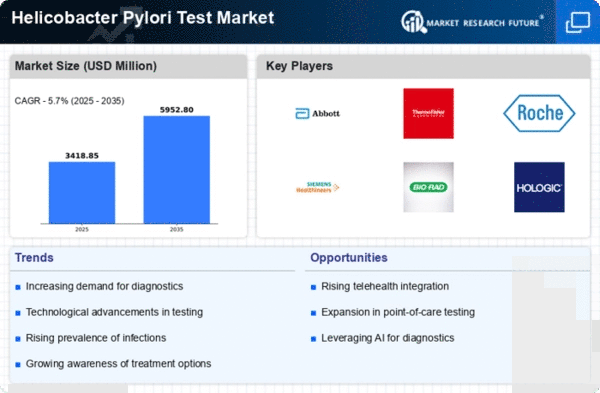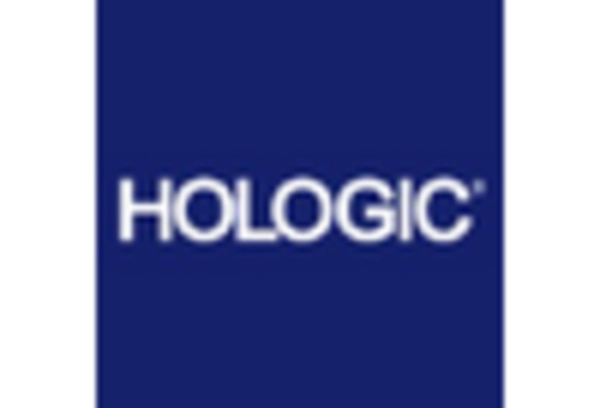Market Analysis
In-depth Analysis of Helicobacter Pylori Test Market Industry Landscape
The market dynamics of H. pylori testing are influenced by various factors that reflect the prevalence of Helicobacter pylori infection worldwide. This bacterium is known for causing gastric and peptic ulcers and is a key focus in the field of diagnostic testing.
One of the main reasons why there is also an increase in demand for this market as a way to boost the economy due to such health issues are increasing cases of H. pylori infection globally. Increasingly, people understand the importance of this microorganism in gastrointestinal diseases and demand new diagnostic tests that are both reliable and effective. The diagnostic procedures have been tremendously reformed by the technological advancements in different areas and this has greatly left a mark on the H. pylori test market place as well. Advancements in molecular diagnostics, serological tests and endoscopy procedures have improved the sensitivity as well as specificity of H. pylori detection There has been a significant surge in the liking of non-invasive tests. The increase in the popularity of less invasive diagnostic procedures among patients and healthcare providers such as breath tests, blood test makes this market segment grow. Due to the extremely close relationship between H. pylori and gastrointestinal disorders such as peptic ulcers, gastritis etc., demand for testing H.pylori has increased a lot in various parts of world. The early detection is the first step towards effective management and treatment of such conditions. Global traveling has significantly increased the number of H. pylori cases since the bacterium can be transmitted through contaminated food and water products. This aspect has grown the market globally with growing testing needs in high footfall tourist regions. The market dynamics also show demand for cost-efficient testing solutions. With the systems making efforts to make a better use of resources, efficient and cost-effective diagnostic methods for H. pylori have emerged as cheaper options that societies can afford readily. Tightly governed regulatory frameworks and approvals for diagnostic test are considered as the key factors in determining market trends. Companies engaging in research and development towards compliance with regulatory standards are at edge, thus influencing market trends. The H. pylori test market environment is moderately competitive with many players providing different diagnostic products. The continued innovations and collaboration among market players are the primary growth drivers for this global fragmented industry.
The COVID-19 pandemic has also influenced the H. pylori test market dynamics. Disruptions in healthcare services and the prioritization of infectious disease testing during the pandemic have had varying effects on the demand for H. pylori testing.


















Leave a Comment